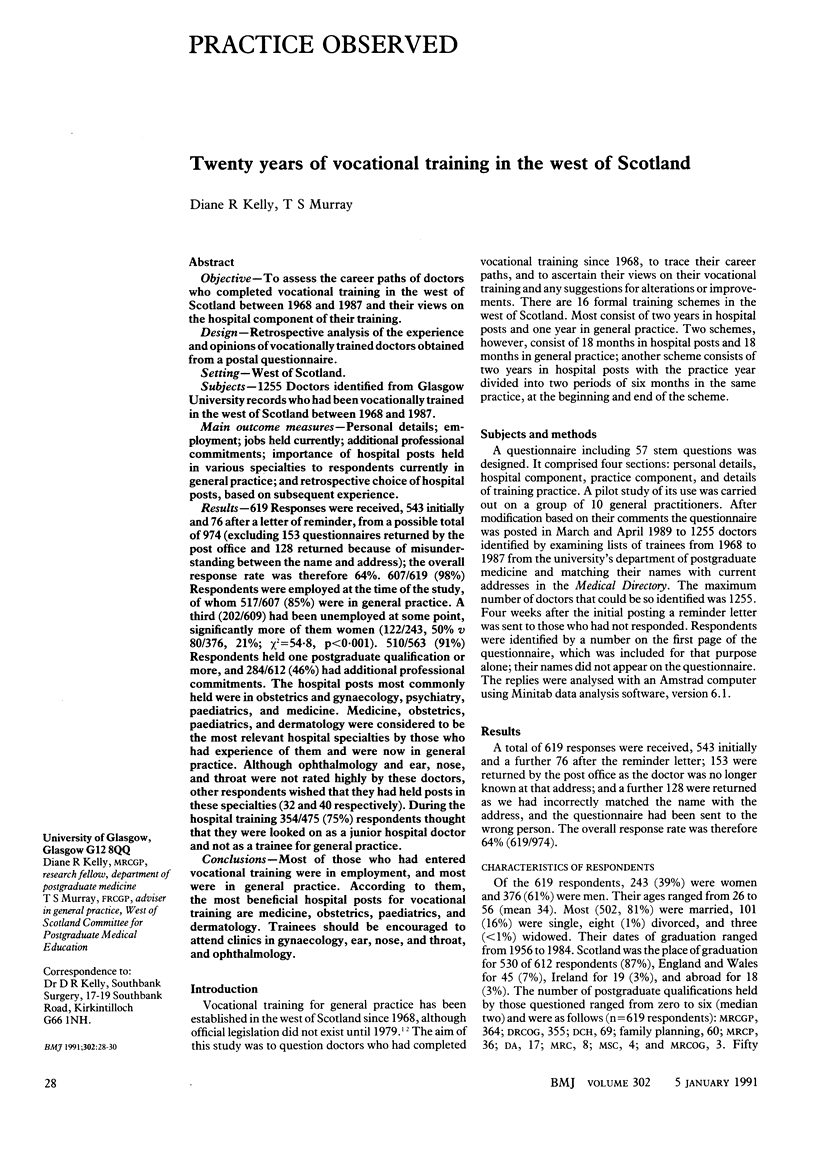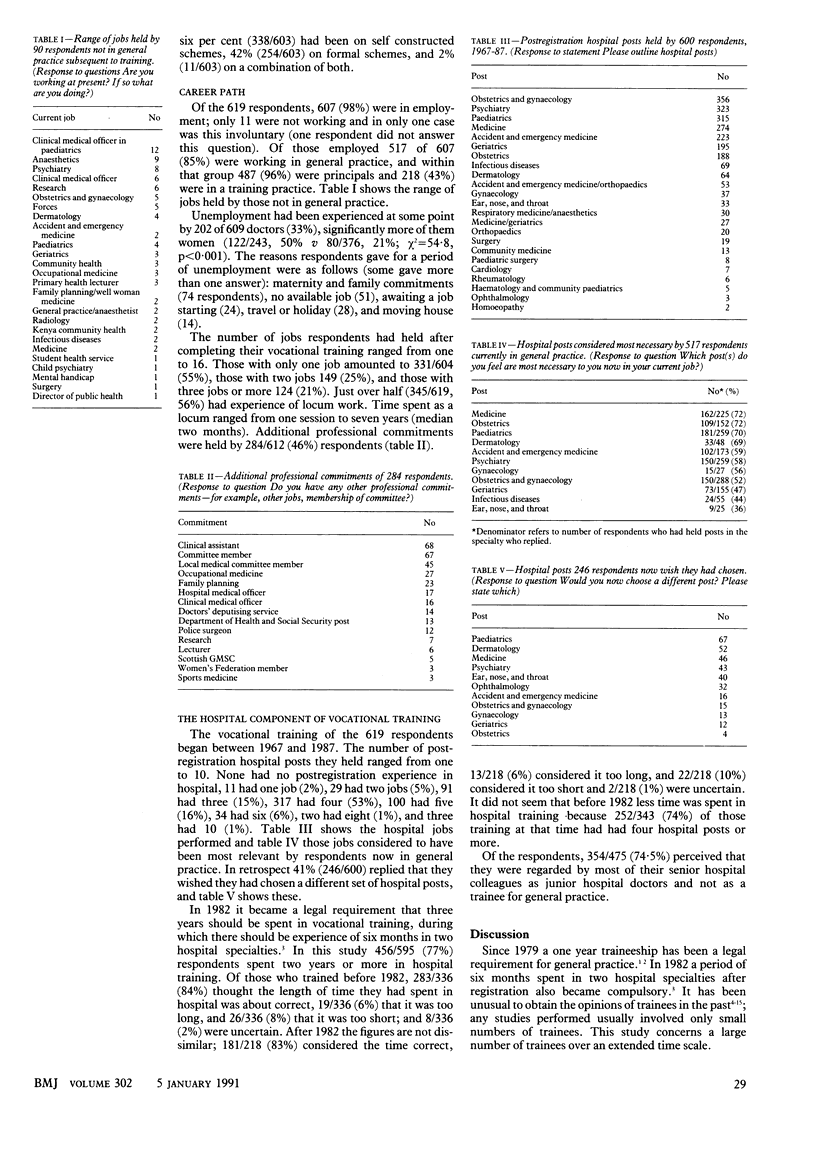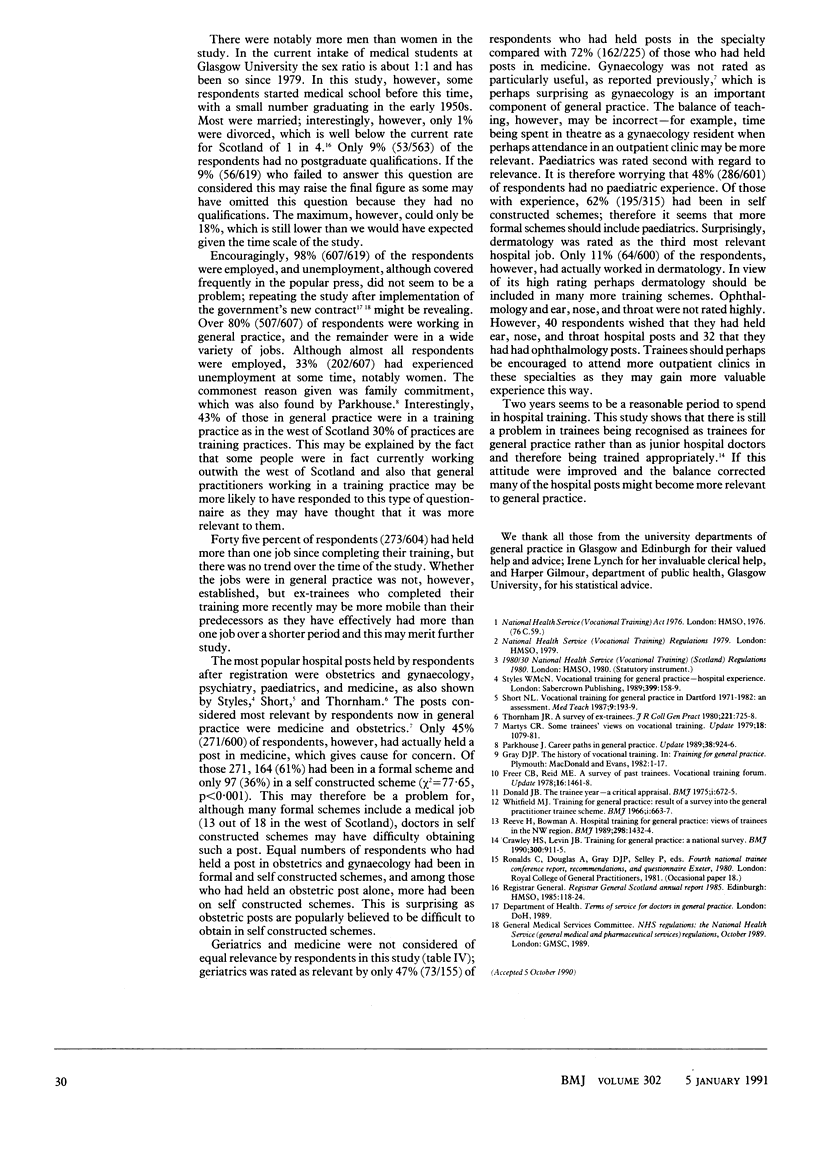Abstract
OBJECTIVE--To assess the career paths of doctors who completed vocational training in the west of Scotland between 1968 and 1987 and their views on the hospital component of their training. DESIGN--Retrospective analysis of the experience and opinions of vocationally trained doctors obtained from a postal questionnaire. SETTING--West of Scotland. SUBJECTS--1255 Doctors identified from Glasgow University records who had been vocationally trained in the west of Scotland between 1968 and 1987. MAIN OUTCOME MEASURES--Personal details; employment; jobs held currently; additional professional commitments; importance of hospital posts held in various specialties to respondents currently in general practice; and retrospective choice of hospital posts, based on subsequent experience. RESULTS--619 Responses were received, 543 initially and 76 after a letter of reminder, from a possible total of 974 (excluding 153 questionnaires returned by the post office and 128 returned because of misunderstanding between the name and address); the overall response rate was therefore 64%. 607/619 (98%) Respondents were employed at the time of the study, of whom 517/607 (85%) were in general practice. A third (202/609) had been unemployed at some point, significantly more of them women (122/243, 50% v 80/376, 21%; chi 2 = 54.8, p less than 0.001). 510/563 (91%) Respondents held one postgraduate qualification or more, and 284/612 (46%) had additional professional commitments. The hospital posts most commonly held were in obstetrics and gynaecology, psychiatry, paediatrics, and medicine. Medicine, obstetrics, paediatrics, and dermatology were considered to be the most relevant hospital specialties by those who had experience of them and were now in general practice. Although ophthalmology and ear, nose, and throat were not rated highly by these doctors, other respondents wished that they had held posts in these specialties (32 and 40 respectively). During the hospital training 354/475 (75%) respondents thought that they were looked on as a junior hospital doctor and not as a trainee for general practice. CONCLUSIONS--Most of those who had entered vocational training were in employment, and most were in general practice. According to them, the most beneficial hospital posts for vocational training are medicine, obstetrics, paediatrics, and dermatology. Trainees should be encouraged to attend clinics in gynaecology, ear, nose, and throat, and ophthalmology.
Full text
PDF


Selected References
These references are in PubMed. This may not be the complete list of references from this article.
- Donald J. B. The trainee year--a critical appraisal. Br Med J. 1975 Mar 22;1(5959):672–675. doi: 10.1136/bmj.1.5959.672. [DOI] [PMC free article] [PubMed] [Google Scholar]
- Reeve H., Bowman A. Hospital training for general practice: views of trainees in the North Western region. BMJ. 1989 May 27;298(6685):1432–1434. doi: 10.1136/bmj.298.6685.1432. [DOI] [PMC free article] [PubMed] [Google Scholar]
- Short N. L. Vocational training for general practice in Dartford 1971-1982: an assessment. Med Teach. 1987;9(2):193–199. doi: 10.3109/01421598709089934. [DOI] [PubMed] [Google Scholar]
- Whitfield M. J. General practice observed. Training for general practice: result of a survey into the general-practitioner trainee scheme. Br Med J. 1966 Mar 12;1(5488):663–667. doi: 10.1136/bmj.1.5488.663. [DOI] [PMC free article] [PubMed] [Google Scholar]


